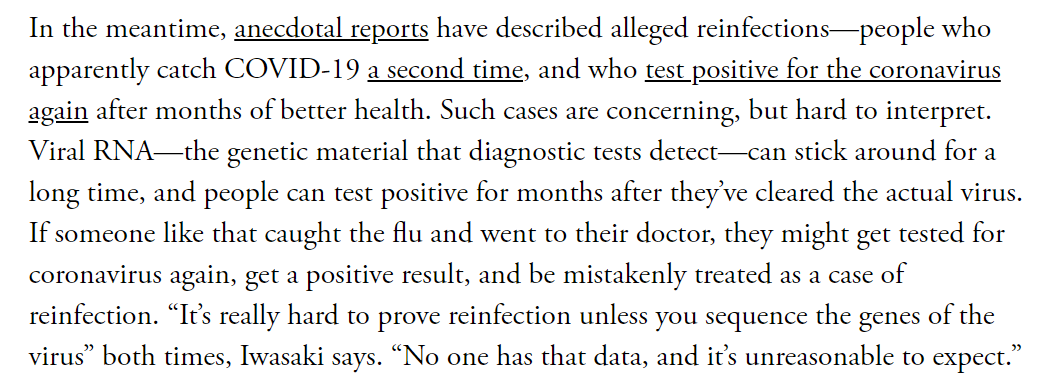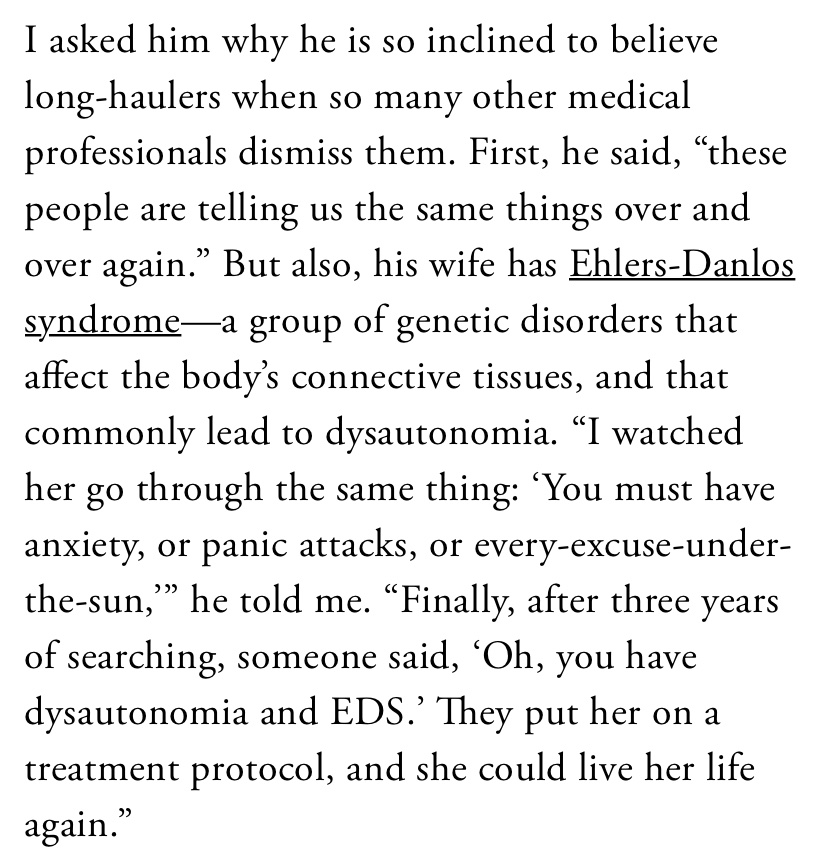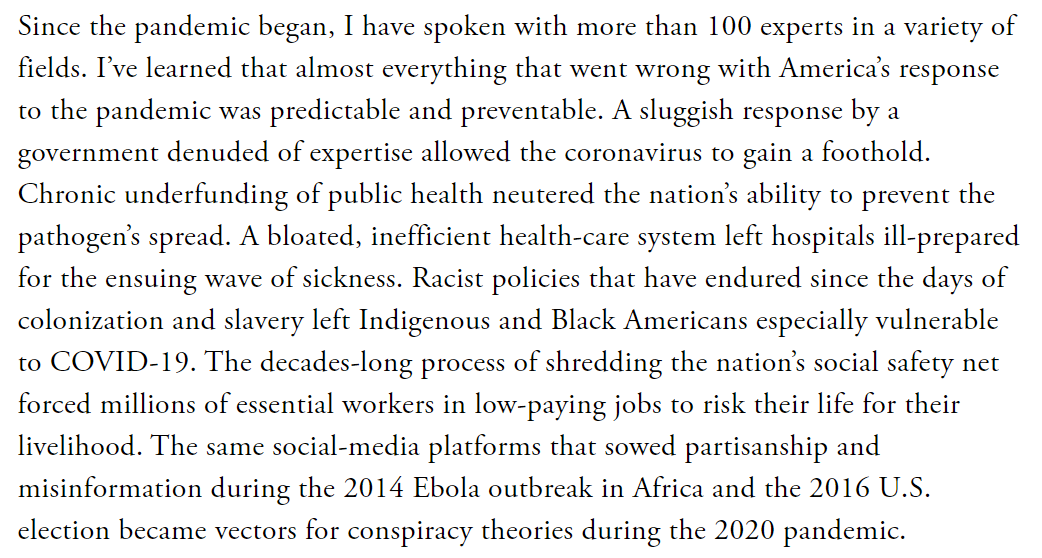
🚨I wrote a new piece about the 9 errors of intuition that people keep making during the pandemic, trapping us in a spiral of bad decisions & policies. This is a guide to thinking about the crisis & breaking free from that endless loop. 1/
theatlantic.com/health/archive…
theatlantic.com/health/archive…
Beating COVID-19 isn't just about more tests/masks. Many of the problems that have tripped us up are conceptual. Magical thinking. False dichotomies. Conflating imperfect with useless. Blaming individuals over fixing systems. I've listed 9. 2/
theatlantic.com/health/archive…
theatlantic.com/health/archive…
These errors of intuition cropped up in debates over masks, social-distancing, ventilation, colleges. They’ll appear again when we have a vaccine. Winter is coming. We must reset, and "adjust our thinking to match the problem before us.” 3/
theatlantic.com/health/archive…
theatlantic.com/health/archive…
These errors aren’t unique to COVID-19. But as I explain in the final section, they’ve been exacerbated by features of this particular pandemic, and by the people who are meant to lead the US out of it--but have instead made things much worse. 4/
theatlantic.com/health/archive…
theatlantic.com/health/archive…
The perfect metaphor for the US pandemic response: the army ant “death spiral.” Following looping pheromone trails, the ants walk in endless self-destructive circles, walled in by their own unhelpful instincts. We should/can do better. 5/
theatlantic.com/health/archive…
theatlantic.com/health/archive…

This piece is a sequel of sorts to this earlier one from April (which is still pretty solid 5 months later) about why the pandemic is so confusing. 6/
theatlantic.com/health/archive…
theatlantic.com/health/archive…
Throughout the year, I’ve tried to write pieces that help us make sense of this generation-defining crisis, deal with the constant gaslighting, see the bigger picture, and find structure amid uncertainty and complexity. I hope this new one helps. Fin/
theatlantic.com/health/archive…
theatlantic.com/health/archive…
PS. Some of you have kindly said that you're looking forward to a time when I can return to nature writing, and, well, the army ants bit comes from the book about animal senses that I still need to finish. I guess you got your wish?
theatlantic.com/health/archive…
theatlantic.com/health/archive…
• • •
Missing some Tweet in this thread? You can try to
force a refresh






